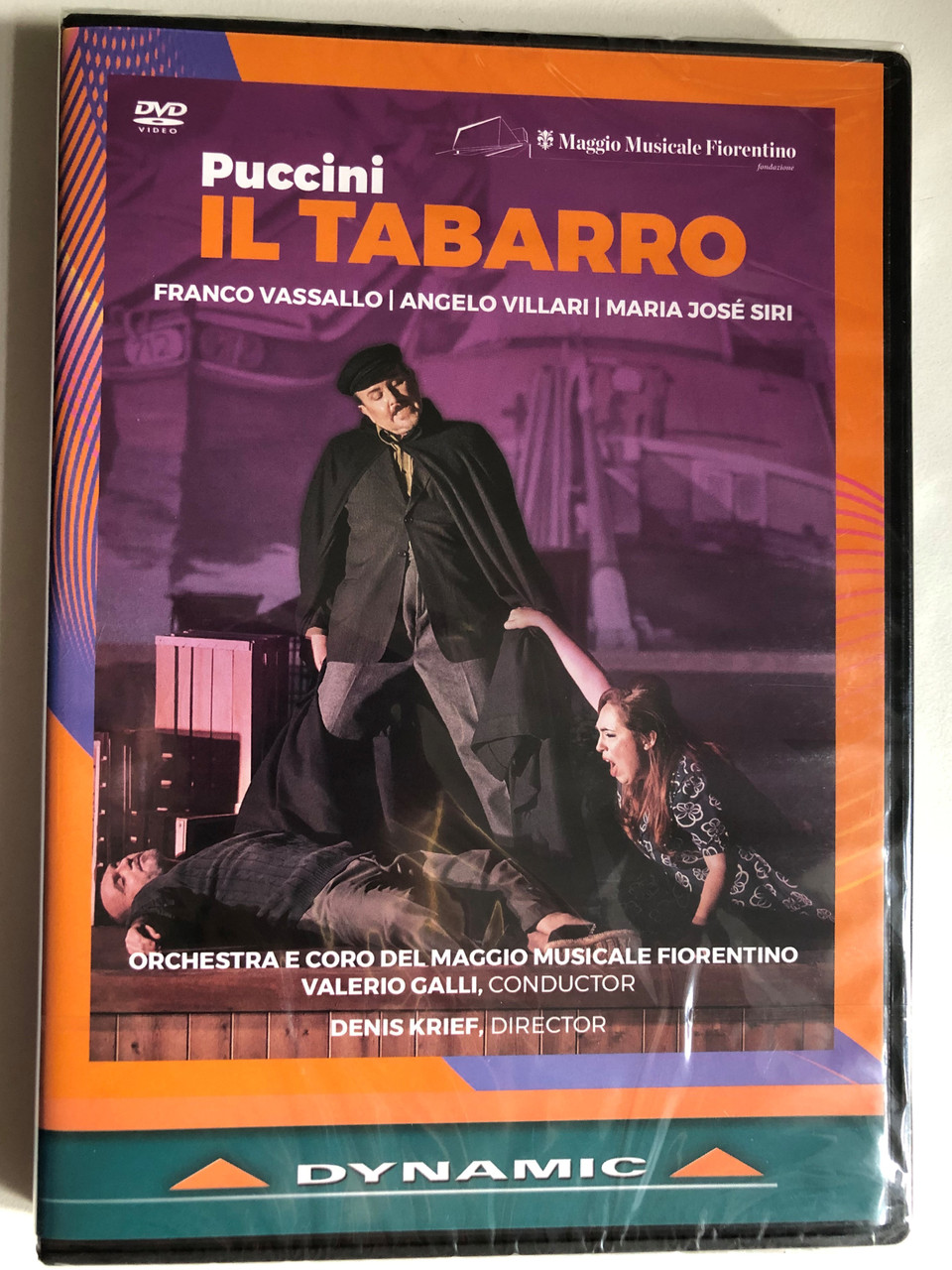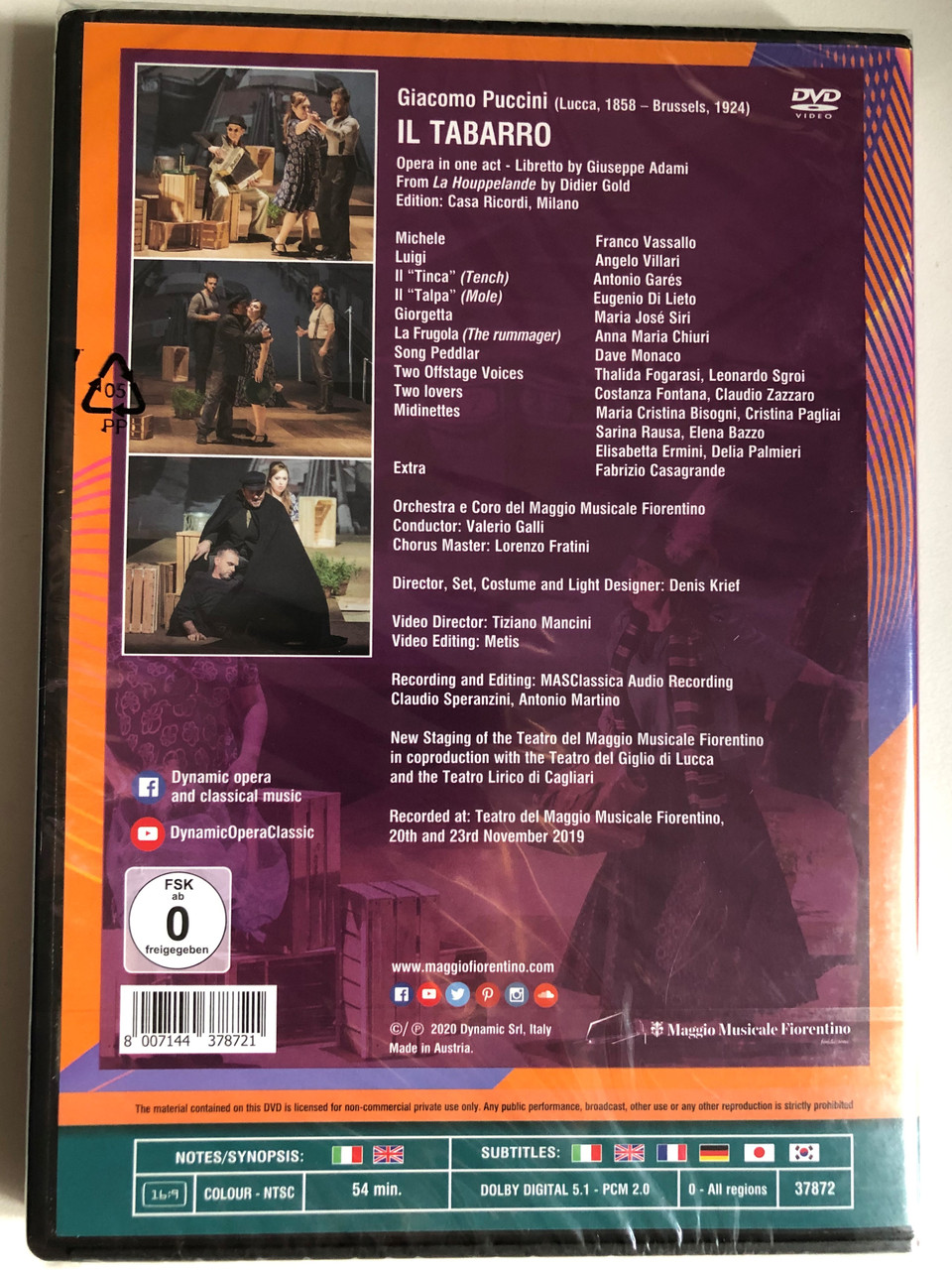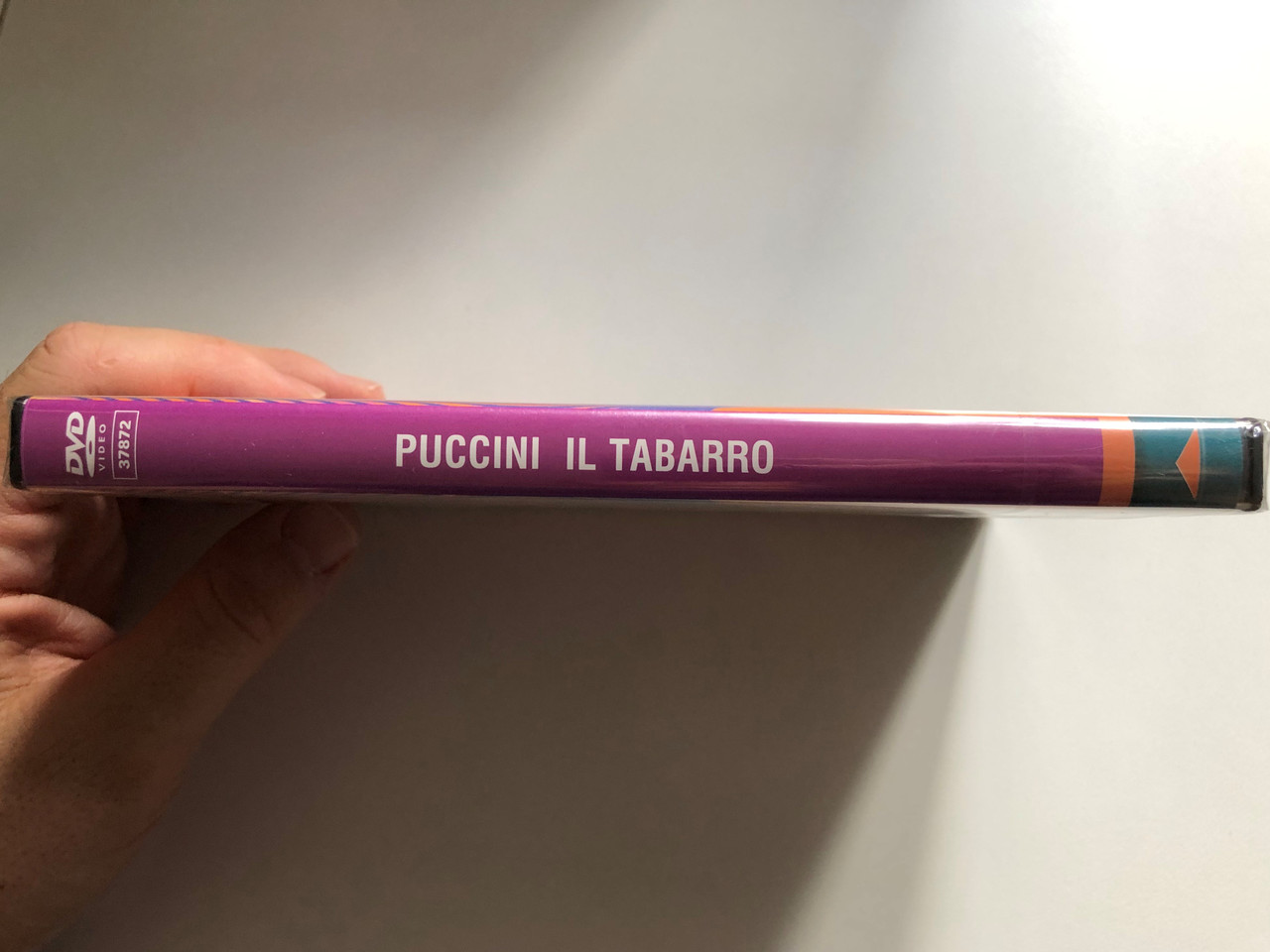Description
Puccini: Il Tabarro / Opera in one act - Libretto by Giuseppe Adami / From La Houppelande by Didier Gold / Orchestra and Chorus of the Maggio Musicale Fiorentino Conductor: Valerio Galli Chorus Master: Lorenzo Fratini / DVD
Format: NTSC
Run time: 54 Minutes
UPC: 8007144378721
- Package Dimensions : 7.56 x 5.31 x 0.63 inches; 3 Ounces
- Director : Denis Krief
- Media Format : NTSC
- Run time : 54 minutes
- Release date : July 17, 2020
- Actors : Franco Vassallo, Angelo Villari, Maria Jose Siri, Orchestra e Coro del Maggio Musicale Fiorentino
- Dubbed: : None
- Subtitles: : English
- Studio : Dynamic
- Number of discs : 1
This production is new staging of the Teatro del Maggio Musicale Fiorentino. Il Tabarro is one of the three one-act operas that compose Giacomo Puccini's Il Trittico. Michele is married to young Giorgetta and shares with her a life full of hardships on a barge over the river Seine. She is in love with Luigi, a young longshoreman hired by her husband during the loading of the barge. When Michele overhears his wife giving a rendezvous to Luigi by night, he waits for the man and attacks him, forces him to admit he is his wife's lover and finally strangles him. Then he hides the body under his cloak, (il tabarro) and when Giorgetta, in mortal fear, comes on deck and asks Michele if he does not wish her to come and rest near him under his cloak, her wronged husband throws it open and Giorgetta discovers in horror her dead lover's body rolling at her feet. The element of Didier Gold's Houppelande that most attracted Puccini was the opportunity to represent, in music, a river, which is what acts as a backdrop in this plot and determines it's pace. The importance of this atmosphere is enormous, because it is linked to the mise en scene more tightly than usual. The action entirely takes place on a barge over the Seine in Paris, which is placed in the centre of the scene. The music describing the river uses a cyclic repetition of ostinato patterns, representing the monotonous flowing of the water, as inexorable as destiny and as regular as the flow of time. The pulse of the river cyclically marks, in the first part of Tabarro, the life of this world of vanquished: longshoremen and boatmen. But even when it disappears, the musical identity between drama and location does not cease to exist.


























